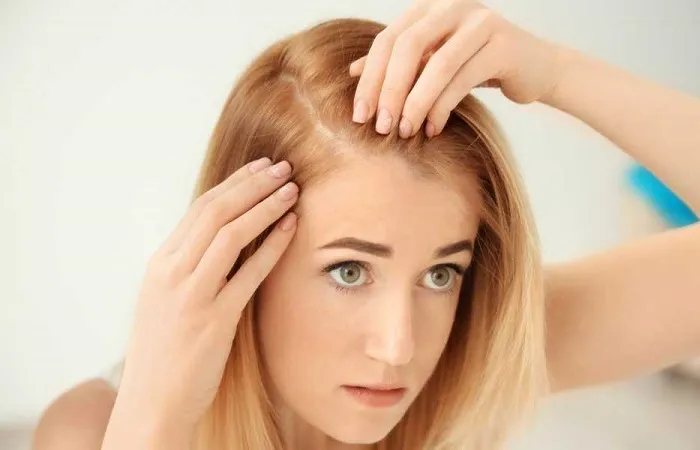Hair transplant surgery is a transformative procedure for individuals experiencing hair loss, providing a long-term solution to enhance both appearance and self-confidence. However, achieving optimal results from a hair transplant requires more than just undergoing the surgery—it requires a comprehensive understanding of proper aftercare. The success of the procedure heavily depends on how well you care for your scalp and transplanted hair during the recovery process. This article will guide you through how to care for your hair after transplantation, focusing on the types of hair transplants, associated costs, the recovery time, and potential risks of the procedure. Ensuring a smooth recovery not only minimizes the risk of complications but also maximizes the final results of your hair transplant.
Understanding Different Hair Transplant Types
There are various hair transplant types that patients can choose from, each with its distinct procedure and benefits. The most common methods are Follicular Unit Extraction (FUE) and Follicular Unit Transplantation (FUT). Your choice of technique will impact both the recovery process and the care you need to follow afterward.
Follicular Unit Extraction (FUE): This method involves the extraction of individual hair follicles from the donor area, which are then implanted into the recipient area. FUE is known for its minimal scarring and faster recovery time, making it a popular choice for many.
Follicular Unit Transplantation (FUT): In FUT, a strip of skin is taken from the donor area, and the follicles are dissected into individual grafts before being transplanted into the recipient area. This method leaves a linear scar but may be more suitable for individuals requiring a larger number of grafts.
Hair Transplant Costs
The costs of a hair transplant can vary widely depending on factors such as the location of the clinic, the number of grafts required, and the specific technique used. Generally, hair transplant procedures can cost anywhere from $3,000 to $15,000 or more. Factors that contribute to the overall cost include the surgeon’s experience, the reputation of the clinic, and the complexity of the case.
While hair transplants can be expensive, they are often considered a worthwhile investment because of the long-term results. In comparison to other treatments for hair loss, a hair transplant offers a more permanent and natural solution, which justifies the initial costs for many individuals.
Hair Transplant Recovery Time
After undergoing a hair transplant, it’s essential to be patient and allow your body to heal properly. The recovery time varies depending on the procedure type and individual factors, but it generally takes between 6 to 12 months to see the full results of a hair transplant. Immediately following the surgery, you may experience swelling, redness, and discomfort, which should subside within a few days.
Initially, the transplanted hair may fall out within the first few weeks as part of the natural shedding process, but new hair should begin to grow back within a few months. It’s important to follow the post-operative care instructions provided by your surgeon to ensure proper healing and maximize hair regrowth.
How to Care for Your Hair After Transplantation
Proper aftercare is critical in achieving the best possible results from your hair transplant. Here are some essential guidelines to follow:
1. Keep the Scalp Clean
In the first few days, avoid washing your hair. Afterward, gently cleanse your scalp using a mild, non-medicated shampoo. Avoid rubbing the transplanted area, as this can disrupt the healing follicles.
2. Avoid Touching or Scratching
Refrain from touching, scratching, or picking at the transplanted areas to prevent infection or follicle damage.
3. Use Medications as Prescribed
Your doctor will prescribe medications to prevent infection and reduce swelling. It’s essential to take these medications as directed.
4. Be Gentle with Hair Care
When washing or brushing your hair, do so gently. Avoid using harsh chemicals or hair products during the early stages of recovery.
5. Protect Your Scalp from the Sun
Exposure to sunlight can damage healing hair follicles. Once your doctor permits, wear a hat or apply sunscreen to the scalp when going outdoors.
6. Avoid Strenuous Physical Activity
Refrain from engaging in vigorous activities that might cause excessive sweating, such as intense workouts or heavy lifting, during the first few weeks of recovery.
Hair Transplant Risks
While hair transplants are generally safe, they do carry certain risks that patients should be aware of. Some of the potential complications include:
Infection: Infection is a rare but possible complication after a hair transplant. It’s important to follow aftercare instructions to minimize the risk.
Scarring: Both FUE and FUT can leave scarring. FUE results in smaller, less visible scars, while FUT typically leaves a linear scar. The extent of scarring depends on the method and individual healing.
Uneven Hair Growth: Some individuals may experience uneven hair growth following a transplant, which may require touch-up procedures.
How Long Does it Take to See Results?
The results of a hair transplant are not immediate. It typically takes several months for transplanted hair to begin growing. By 3 to 4 months, new hair growth should be noticeable, and by 6 to 12 months, the transplanted hair will have thickened and matured.
Conclusion
Caring for your hair after a transplant is just as important as the procedure itself. Following the right aftercare steps ensures that the transplanted hair follicles thrive and results in fuller, thicker hair in the long run. Understanding the types of hair transplants, knowing the costs, and being aware of the recovery time will help you make an informed decision about your treatment. By following proper care and being patient throughout the recovery process, you can ensure that you achieve the best possible results from your hair transplant.
Related Topics
- How Much Does Fue Hair Transplant Cost
- 9 Side Effects Of Hair Transplantation
- A Hair Transplant In Glasgow: Pros & Cons


